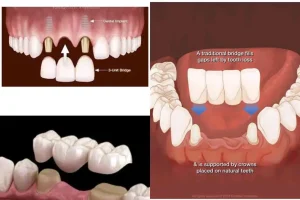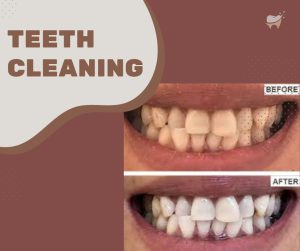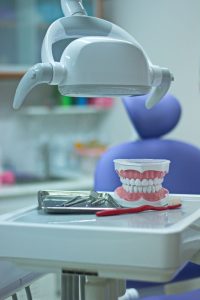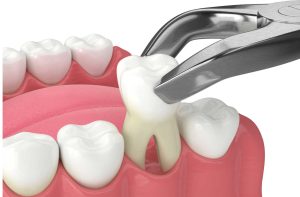Advantages and Disadvantages of Dental Bridges
Are you in the process of deciding whether a dental bridge is the right solution for your missing or damaged teeth? If you find yourself with one or more missing teeth that cannot be restored, a dental bridge is a potential option. To make an informed decision, it’s crucial to understand the pros and cons of bridges, especially when compared to alternatives like dental implants.
What is a Dental Bridge?
A dental bridge is essentially an artificial tooth or row of teeth that attaches to existing natural teeth or dental implants. They earn their name by “bridging” the gap between healthy teeth. There are three main types of bridges, each categorized by the method used to anchor them in place.
- Traditional Bridge:
- This type attaches to healthy teeth on either side of the missing tooth or teeth.
- Natural teeth are shaped down, and crowns are placed for added strength and security.
- Implant Supported Bridge:
-
- Utilizes dental implants on either side of the bridge to support three or more replaced teeth.
Advantages of Dental Bridges
Now that the mechanics are clear, let’s delve into the advantages of opting for a dental bridge:
- Cost-Effective:
- Bridges are more cost-effective than implants, making them an appealing choice for budget-conscious individuals.
- No Bone Grafting Needed:
- Unlike implants, bridges do not require bone grafting, simplifying the procedure and reducing recovery time.
- Advantages Over Dentures:
- Bridges offer a more secure alternative to dentures, especially when there are enough healthy teeth to act as anchors.
- Quick Installation:
- Bridges are faster to put in place, especially when compared to the additional time required for implants and bone grafting.
Disadvantages of Dental Bridges
While there are notable benefits, it’s essential to consider the drawbacks of dental bridges:
- Damage to Healthy Teeth:
- Traditional bridges involve crowns over healthy teeth, risking the loss of healthy enamel.
- Issues with Maryland Bridges:
- Maryland bridges can cause damage to existing teeth and are less sturdy than other bridge types.
- Time and Cost for Implant-Supported Bridges:
- Implant-supported bridges take longer and cost more due to the initial placement of implants.
- No Correction for Bone Loss:
- Bridges don’t address bone loss in the jaw, a concern that implants effectively tackle.
- Limited Lifespan:
- Unlike implants, bridges are not expected to last a lifetime due to potential damage to anchor teeth.
TM Dental Solution in Kisaasi Can Help You Choose Your Best Option
Still uncertain about the best choice for you? Seek a professional opinion from TM Dental Solution in Kisaasi, a dental practice with expertise in placing bridges and dental implants. Call +256709966946 today to schedule a consultation or request an appointment. Their team will assess your dental condition, address your concerns, and recommend the most suitable treatment plan for you.




